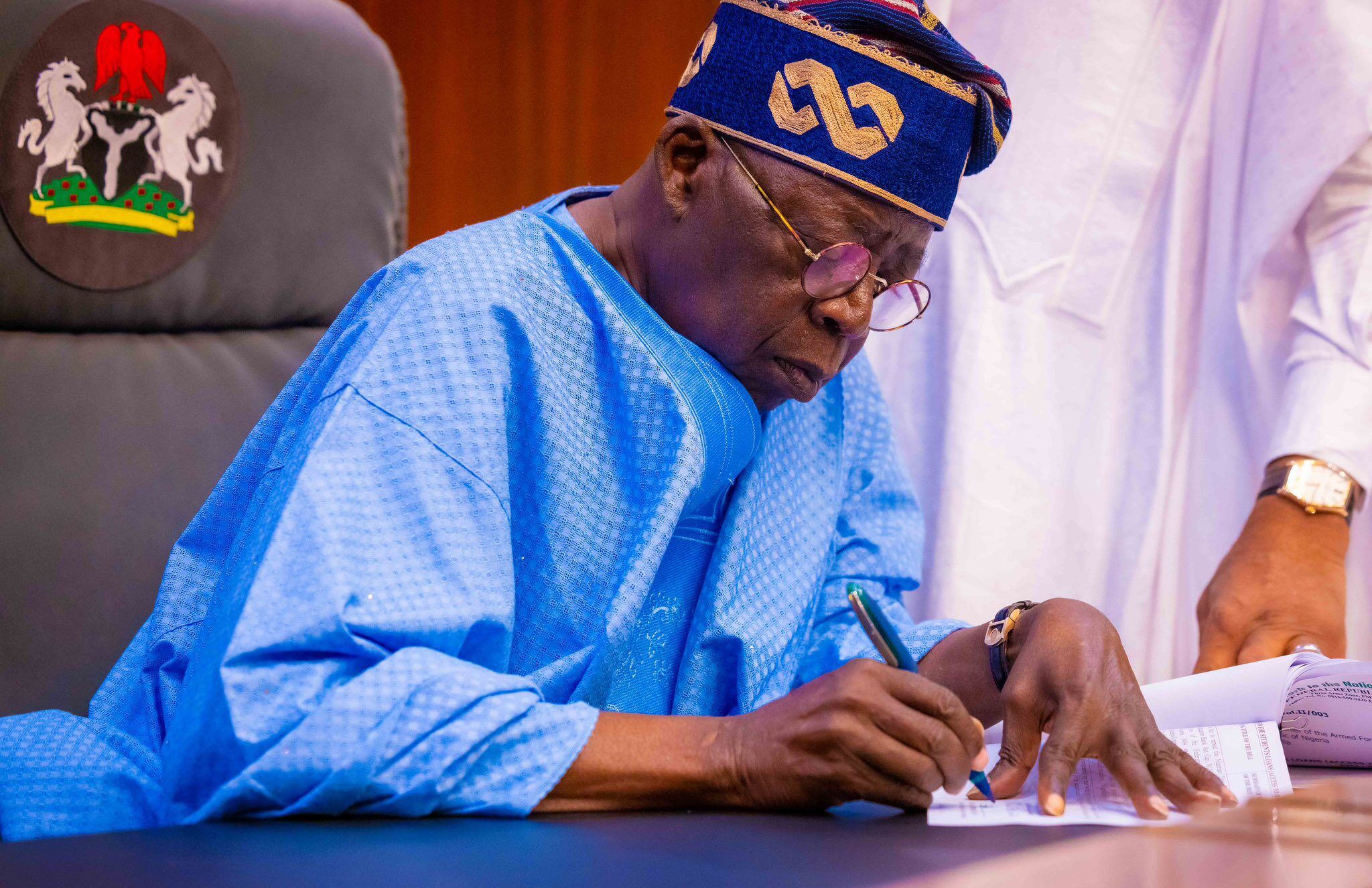Tinubu refuses to sign NDLEA bill over drug-related crimes proceeds clause

Tinubu Declines Assent to NDLEA Bill Over Asset Forfeiture Clause President Bola Ahmed Tinubu has refused to sign the National Drug Law Enforcement Agency (NDLEA) Bill, 2025, into law, citing concerns over a clause that would have allowed the agency to retain a portion of the proceeds from drug-related crimes. The decision, communicated to the National Assembly in a letter read by House Speaker Tajudeen Abbas on Thursday, June 26, 2025, highlights a potential conflict between the proposed legislation and existing financial regulations.
Constitutional Concerns Raised Tinubu's primary objection centers around the bill's provision empowering the NDLEA to retain a percentage of seized assets. Referencing Section 58(4) of the 1999 Constitution (as amended), the President argued that this provision contravenes established procedures for managing confiscated assets. "All proceeds of crime are paid into the government's Confiscated and Forfeited Properties Account," Tinubu stated in his letter to the National Assembly. He emphasized that current protocols mandate presidential approval, in consultation with the Federal Executive Council and the National Assembly, for any disbursements to recovery agencies, including the NDLEA. The President believes the existing framework ensures adequate accountability and oversight.
Expert Analysis: Balancing Efficiency and Oversight According to Dr. Fatima Hassan, a public finance expert at the Centre for Fiscal Transparency, Tinubu's decision reflects a broader concern about maintaining centralized control over recovered assets. "While granting the NDLEA direct access to a portion of seized funds might seem to streamline operations and incentivize effectiveness, it could also create opportunities for abuse and reduce transparency," Dr. Hassan explained. "The existing system, though potentially slower, provides checks and balances that are crucial for preventing corruption and ensuring that recovered assets are used for public benefit."
Historical Context: Asset Recovery in Nigeria The issue of asset recovery has been a recurring theme in Nigerian politics and governance. Successive administrations have grappled with the challenges of tracing, seizing, and managing illicitly acquired wealth, both within and outside the country. The establishment of the Confiscated and Forfeited Properties Account was intended to centralize the management of these assets and ensure their transparent utilization. However, concerns about the efficiency and effectiveness of the existing system have persisted, leading to periodic calls for reforms.
Second Bill Rejected This Week The NDLEA bill marks the second time this week that President Tinubu has withheld his assent from legislation passed by the National Assembly. On Tuesday, June 24, 2025, he rejected the National Assembly Library Trust Fund (Establishment) Amendment Bill, 2025, citing inconsistencies with federal laws and policies, particularly regarding agency funding, taxation, and remuneration structures. These rejections underscore the President's commitment to ensuring that new legislation aligns with existing legal and fiscal frameworks.
Tax Reform Bills Signed Into Law In contrast to the rejected bills, President Tinubu signed four groundbreaking tax reform bills into law on Thursday. These bills, including the Nigeria Tax Bill, the Nigeria Tax Administration Bill, the Nigeria Revenue Service (Establishment) Bill, and the Joint Revenue Board (Establishment) Bill, represent a significant overhaul of Nigeria's fiscal and revenue framework. The passage of these bills followed extensive consultations with various interest groups and stakeholders, signaling a more collaborative approach to fiscal policy.
Future Implications The President's refusal to sign the NDLEA bill necessitates further deliberation and potential revisions by the National Assembly. Lawmakers will need to address the constitutional concerns raised by Tinubu while considering alternative mechanisms to enhance the NDLEA's operational effectiveness. Finding a balance between empowering the agency to combat drug-related crimes and safeguarding public funds through robust oversight mechanisms will be crucial.
Another Perspective: Empowering the NDLEA However, some argue that allowing the NDLEA to retain a portion of seized assets is crucial for bolstering its operational capacity. According to security analyst, Mr. Chidi Okoro, "The NDLEA often faces budgetary constraints that hinder its ability to effectively investigate and prosecute drug traffickers. Granting the agency access to a percentage of recovered assets could provide a much-needed source of funding for intelligence gathering, training, and equipment procurement." He suggests that stringent oversight mechanisms could be implemented to mitigate the risk of abuse, such as requiring the NDLEA to submit detailed financial reports to the National Assembly and the Federal Executive Council.
Originally sourced from: pulse Ng
